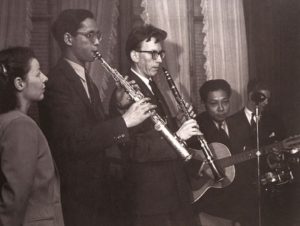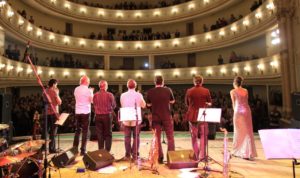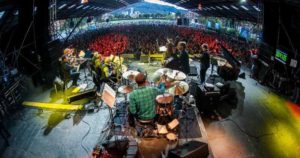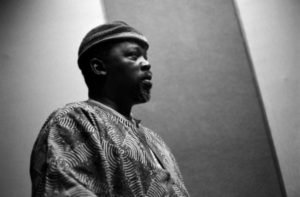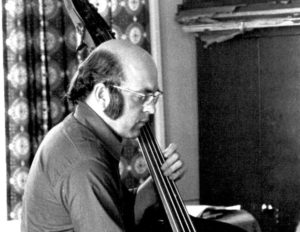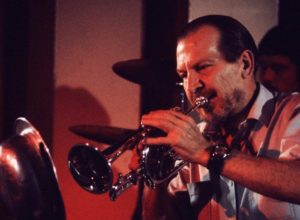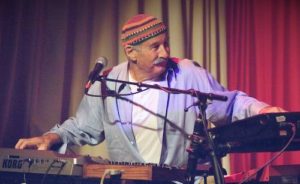Jazz in Sudan
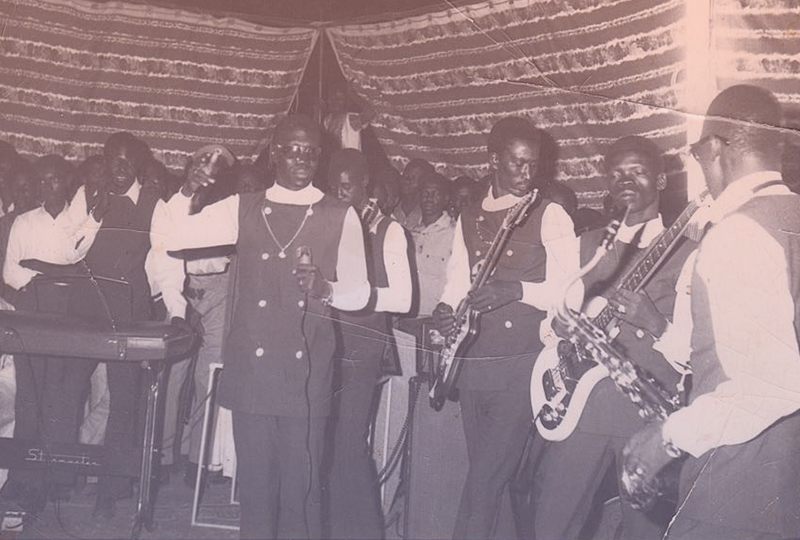
The period following Sudan’s independence from Britain in 1956 was a period of artistic freedom, at least in the capital Khartoum and Omdurman, Sudan’s largest city and cultural centre. Another catalyst in the development of jazz in the 1960s, was a concert by Louis Armstrong in the National Theatre in Omdurman in January 1961, as part of a State Department tour, taking in 27 African cities. Among those in the audience was saxophonist Amer Nasser, who took up the trumpet following the concert, and was inspired to put a band together, which became The Scorpions Jazz Band, with Congolese bassist Osman Zeeto, vocalist Saif Abu Bakr. Despite the influence of Satchmo, the name of the band, and calling one of their albums Jazz, Jazz, Jazz, Jazz, Jazz (1980), the band’s music had more in common with early funk bands, like The Meters. One of their idols was singer-guitarist Sharhabeel Ahmed, who is considered the first artist of importance in Sudanese jazz. Born in 1935, his music, which he called “Sudanese Jazz” was again arguably more a combination of Rock’n’Roll and funk with Sudanese folk and West African sounds like Highlife and Afrobeat. And no worse for that.
Funk and soul are again as prevelant as jazz in the music of Kamal Keila, as are the influence of jazz musicians from neighbouring Ethiopia, like Mulatu Astatke. Keila had never released an album until latter day Alan Lomax, the German label owner Jannis Stürtz sought out Keila at the age of 89, and managed to secure a tape, recorded in 1992 ‘Muslims and Christians’, which became an early release on his new Habibi Funk label.
Cultural restrictions were brought in following the military coup led by General Omar al-Bashir in 1989 (al-Bashir was himself deposed in a coup only in 2019, after 30 years in power). The closure of concert halls hampered musicians ability to earn a living, while those that spoke out, whether in speech or in music, could find themselves imprisoned.
The recent release by Habibi Funk has certainly fostered an interest among Western audiences in the occasionally jazz-influenced ‘Sudanese Jazz’ scene of the 1960s and 70s, and Sharhabeel Ahmed was touring internationally until recently.
Signs are hopeful for a further renaissance of jazz in Sudan with the impressive energies of young musicians like Islam Ebeiti, a twenty something female bass player, who also has her own radio show in Khartoum, called Jazzified.
Please Note: The link for South Sudan, newly independent since 2011, is directed here. I haven’t managed to find out much about a jazz scene specific to the new country, though De’Havana Lounge in the capital Juba does have a ‘jazz night’ on Mondays, and participated in International Jazz Day.
